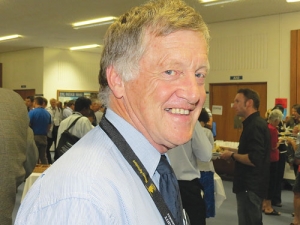A leading soil scientist says the exact science to meet the demand by the public and government to improve water quality hasn't been in place.
Massey University's professor Mike Hedley says consequently the policymakers have made decisions without really knowing what the exact changes to farm management need to be to achieve this outcome.
He says much of the science used has been in nutrient budgeting, which works well at paddock and farm scale but is poorly connected to water quality.
Hedley is director of the Fertiliser and Lime Research Centre, Massey University, which last week held its annual workshop at the Manawatu campus. At least 250 scientists, farmers and rural professionals attended the three-day event.
This year's theme was nutrient and water management for sustainable farming. Hedley says it was designed to link with the Government's latest science challenge 'Our Land and Water', which will see $230 million spent by CRIs and universities over the next ten years to produce definitive science on how to best manage land and water in New Zealand.
He hopes the collective science expertise will yield real answers for farmers struggling to try to change their farming systems and reduce the impact of diffuse discharge into water.
Hedley says a suggestion that land should be viewed in terms of its suitability rather than its capability will signal a change in land use. In the past, science has mostly driven productivity, irrespective of the potential adverse effects that could have on the environment.
"We need a bit of rethinking of the mitigation strategies of different land units and soil types," he explains. "Some, but not all of it, can be done on individual properties, but it is going to be a tough one to crack and we have to discuss that with farming communities.
"A scenario could involve neighbouring farmers collaborating and developing a share farming agreement; for example, where at a certain time of year they don't have intensive stock on certain soils on one of the farms when there is a high risk of leaching nitrogen or phosphorous into the water."
Hedley believes hard questions will have to be asked about the way we farm in NZ. He says in the present environment of low returns for some agricultural products, farmers are looking more closely at their operations. He suggests this may be a good time for them to look long-term and identify sustainable options for their farms.











